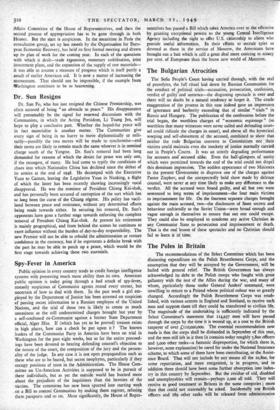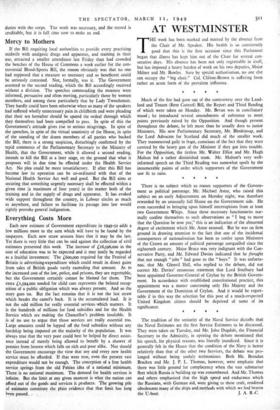The Poles in Britain
The recommendations of the Select Committee which has been discussing expenditure on the Polish Resettlement Corps, and the assumption that they will be accepted by the Government, will be hailed with general relief. The British Government has always acknowledged its debt to the Polish troops who fought with great gallantry with the rest of the Allies during the war, and many of whom, particularly those under General Anders' command, were unwilling to return to a Poland whose political colour was so greatly changed. Accordingly the Polish Resettlement Corps was estab- lished, with various centres in England and Scotland, to receive such men and support them till they could be transferred to civilian life. The magnitude of the undertaking is sufficiently indicated by the Select Committee's statement that 114,037 men will have passed through the corps by the time it is wound up, at a cost to the British taxpayer of over LI ics000,000. The essential recommendation now made is that the corps shall be disbanded in September of this year, and the men still left in it then (it contains today roughly 5,800 officers and 5,000 other ranks—a fantastic disproportion, for which there is, however, some explanation) be cared for under the National Insurance scheme, to which some of them have been contributing, or the Assist- ance Board. That will not include by any means all the io,800, for some repatriation, and more emigration, is in progress, and in addition there should have been some further absorption into indus- try in this country by September. But the residue of old, disabled and unemployables will remain—perhaps 2,000 all told. They will receive as good treatment as Britons in the same categories ; more than that could not reasonably be asked. Incidentally ton British officers and 289 other ranks wild be released from administrative
duties with the corps. The work was necessary, and the record is creditable, but it is full time now to make an end.







































 Previous page
Previous page